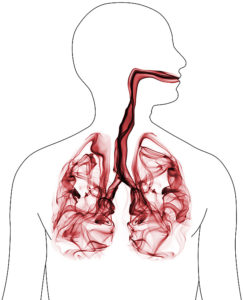“WHY DO I SMOKE?”
 If you know the answer to this question, it will be easier to stop smoking because you can find ways to make up for the things you may miss when you stop.
If you know the answer to this question, it will be easier to stop smoking because you can find ways to make up for the things you may miss when you stop.
Most people smoke for different reasons at different times. Reasons for smoking include psychological issues, habits, social pressures and physical dependence on nicotine. The questionnaire that follows will help you decide which reasons are important in your smoking.
TRIED QUITTING AND FAILED? CONTACT SUSAN.
Take the Smoking Quiz…
THE “WHY TEST” Next to the following statements, mark the number that best describes your own experience. (5=Always, 4=Most of the time, 3=Once in a while, 2=Rarely, 1=Never)
___A. I smoke to keep myself from slowing down.
___B. Handling a cigarette is part of the enjoyment of smoking it.
___C. Smoking is pleasant and relaxing.
___D. I light up a cigarette when I feel angry about something.
___E. When I am out of cigarettes, it’s near-torture until I can get more.
___F. I smoke automatically, without even being aware of it.
___G. I smoke when people around me are smoking.
___H. I smoke to perk myself up.
___I. Part of my enjoyment from smoking is preparing to light up.
___J. I get pleasure from smoking.
___K. When I feel uncomfortable or upset, I light up a cigarette.
___L. When I’m not smoking a cigarette, I’m very much aware of the fact
___M. I often light up a cigarette when one is still burning in the ashtray.
___N. I smoke cigarettes with friends when I am having a good time.
___O. When I smoke, part of the enjoyment is watching the smoke as I exhale.
___P. I want a cigarette most often when I am comfortable and relaxed.
___Q. I smoke when I am “blue” and want to take my mind off what’s bothering me.
___R. I get a real hunger for a cigarette when I haven’t had one in a while.
___S. I’ve found a cigarette in my mouth and haven’t remembered it was there.
___T. I always smoke when I am out with friends at a party, bar, etc.
___U. I always smoke cigarettes to get a lift.
NOW SCORE YOURSELF
STEP 1: Transfer the numbers from the quiz to the scorecard that follows by matching up the letters. For example, take the number you wrote for question A on the quiz and enter it on line A of the scorecard.
STEP 2: Add each set of 3 scores on the scorecard to get the total for each different category. For example, to find your score on the “Stimulation” category, add together the scores for questions A, H and U.
The score for each category can range from a low of 3 to a high of 15. A score of 11 or above on any set is high and means that your smoking is probably influenced by that category. A score of 7 or below is low and means that this category is not a primary source of satisfaction to you when you smoke.
“WHY TEST” SCORECARD “IT STIMULATES ME”
___A
___H
___U
___”Stimulation” Total
You feel that smoking gives you energy and keeps you going. Think about alternative ways to boost your energy, such as brisk walking or jogging.
“I WANT SOMETHING IN MY HAND”
___B
___I
___O
___”Handling” Total
There are a lot of things you can do with your hands without lighting up a cigarette. Try doodling with a pencil, or playing with putty or “worry beads”.
“IT FEELS GOOD”
You get a lot of physical pleasure from smoking. Various forms of exercise or other activates can be effective alternatives.
___C
___J
___P
___”Pleasure/Relaxation” Total
“IT’S A CRUTCH”
___D
___K
___Q
___”Crutch/Tension” Total
You find cigarettes comforting in times of stress. When you are feeling stressed, repeat to yourself, “I am a non-smoker, and I feel relaxed and calm”. Drink plenty of water to replace the cigarettes; it works!
“I’M HOOKED”
___E
___L
___R
____”Craving/Addiction” Total
If you believe you’re addicted to nicotine you probably believe it’s difficult to stop smoking. What you believe your experience will be, will in fact be your experience. But it doesn’t have to be. Replace your desires for cigarettes with a desire for water, and know that the water will be washing away the toxins from your system, washing away your cravings and physical connection to the nicotine. Everytime you think of wanting a cigarette, pivot your thought to wanting a glass of water – and always carry water with you. And you may find quitting an easy thing.
“IT’S PART OF MY ROUTINE”
___F
___M
___S
___”Habit” Total
If cigarettes are part of your daily habit, replace it with a new, satisfying habit. Taking a walk, writing in a journal, knitting – these are all “busy” activities you might use to replace cigarettes.
“I’M A SOCIAL SMOKER”
___G
___N
___T
___”Social Smoker” Total
You smoke when people around you are smoking and when you are offered cigarettes. It is important for you to avoid these situations until you are confident about being a nonsmoker. If you cannot avoid a situation in which others are smoking, repeat to yourself,” I am a non-smoker, now and forever”
NOW HOW DO I QUIT?
You don’t have to go it alone, Contact Susan for Cognitive Behavioral Therapy, and/or Hypnosis, a wonderful tool for quitting.
Meet with Susan from anywhere in the world on Zoom.
FREE TIP: You can work on self-hypnosis by using these 2 tools:
-
Write on a card “I AM A NON-SMOKER, NOW AND FOREVER” and repeat this out loud to yourself over and over and over again as the last thing you do before falling asleep. The last thing we think before going to sleep is repeated all night long by the subconscious. The trick is that you must do this for 30 CONSECUTIVE nights. Then it will be your new automatic subconscious thought.
-
Throughout your day, when you need reinforcement and strength, repeat to yourself silently the words “LEMON TREE”. You can use this as many times as you need.
And KNOW that you are capable of this – you have what it takes. And…YOU ARE NOW A NON-SMOKER, NOW AND FOREVER. Congratulations!
If you would like help getting there…
Interesting Facts About Smoking…
 Did you know that the more intensively you focus on stopping, the higher your odds of stopping?
Did you know that the more intensively you focus on stopping, the higher your odds of stopping?
Did you know that your appeal to the opposite sex could triple as a non-smoker?
Did you know that stopping smoking could help you avoid complications when undergoing surgery?
Did you know that the use of cessation materials like Hypnosis increases your chances of stopping smoking?
Did you know that research shows that smokers are 4X more likely to have gray hair than nonsmokers? Smoking depletes the body of oxygenated blood, which delivers much-needed proteins and nutrients to the scalp.
Did you know that smoking over a prolonged period of time has even been linked to accelerated hair loss?
Meet with Susan from anywhere in the world on Zoom.
I can help you stop smoking. It can be easy, natural and enjoyable.
Did you know that for every day that you are not smoking, your immune system improves?
Did you know that stopping smoking can be one of the biggest factors in improving sexual functioning?
Did you know that even smokers view non-smokers more positively than they do smokers?
Did you know that as a non-smoker, others might perceive you as being more sophisticated than as a smoker?
Did you know that as a non-smoker, others may perceive you as being more self-disciplined than as a smoker?
Did you know that as a non-smoker, others might perceive you as being wiser than a smoker is perceived?
Did you know that as a non-smoking female, men perceive you as more sexually attractive than when you used to smoke?
Did you know that as a non-smoking female, men perceive you as more likable than when you used to smoke?
Did you know that by avoiding typical “cues” to smoke that the likelihood of remaining quit is doubled?
Did you know that non-smokers are seen as more mature than smokers?
Did you know that non-smokers find other non-smokers more attractive than smokers?
Did you know that non-smokers are viewed as more desirable to date than smokers?
Did you know that non-smokers are seen as healthier than smokers are?
Did you know that quitting smoking could be a protective factor for erectile dysfunction?
Did you know that actors who use tobacco products are rated less favorably by children than actors who don’t use tobacco products?
Did you know that expectant mothers who quit cigarettes reduce their baby’s chances of having attention, motor control and perception problems?
Did you know that stopping smoking might help you avoid cervical abnormalities?
Did you know that having people around you who are positive about your effort to stop smoking actually helps quitting?
Did you know that increasing one’s exercise has been linked with success in stopping smoking?
Did you know that persons who have remained stopped for more than 15 years appear to have the same risk as “never-smokers” for stomach cancer?
Did you know that excess risk of heart disease caused by smoking could be cut in HALF after just ONE YEAR of quitting smoking?
Did you know that the minimal weight gain reported by some ex-smokers usually reverses itself over time?
Did you know that stopping smoking with Hypnosis usually results in NO weight gain?
Did you know that stopping smoking could eliminate your need for cholesterol lowering medication, and result in significant cost savings?
Did you know that the increased risk for developing prostate cancer as a smoker disappears over time once you stop?
Did you know that stopping smoking could increase your options for the safe use of contraceptives?
Did you know that stopping smoking could help to slow facial aging and the appearance of wrinkles?
Did you know that lung function improves within a FEW MONTHS of stopping smoking?
Did you know that supportive partners increase the chances of their significant others stopping?
Did you know that self-massage may help quitters to relax and improve their mood while stopping?
Did you know that self-massaging one’s hands can reduce withdrawal symptoms?
Did you know that there are usually no withdrawal symptoms when stopping smoking with Hypnosis?
DID YOU KNOW THAT YOU DON’T HAVE TO GO IT ALONE?
 Did you know that with Hypnosis you are using 100% of your mind, not just the 10% of your Conscious Mind, to Stop Smoking?
Did you know that with Hypnosis you are using 100% of your mind, not just the 10% of your Conscious Mind, to Stop Smoking?Do you know how much easier, faster, more relaxing and more effective Hypnosis is than any other method for stopping? Let me show you.
Did you know that
IT IS TIME FOR YOU TO STOP SMOKING – NOW.
When you are ready, I am here for you!
“I like this program. I believe it will help me (stay away) from my problems. I really enjoyed it while I was here. I accomplished my goal. I have not experienced any withdrawal symptoms. I have greater health consciousness, greater self-confidence, better eating habits, improved performance at work, better concentration, more energy, exercise more, better sleeping patterns, better memory, thinking more positively, improved home life. I am satisfied with the Program.”
~ M. Abraham R.R.S.W II
 “This has led me in a very positive direction and shown me what I must do to remain stopped. I have been very satisfied.”
“This has led me in a very positive direction and shown me what I must do to remain stopped. I have been very satisfied.”
Jack – musician
“Great experience. Very enjoyable, relaxing. A pleasure working with Susan. We worked on my specific requested agenda as well as other social aspects of my life. I’m making excellent progress towards my goals. All very satisfying.” “Thinking more positively! More energy. Greater Self-confidence.”
~ Dentist
Stop Smoking
Mark Twain said, “Quitting smoking is easy. I’ve done it a thousand times.”
Maybe you’ve tried quitting before, too? If you’re reading this, I can assume your past efforts haven’t been successful. Perhaps you’re looking to try Hypnosis after seeing Matt Damon on The Tonight Show with Jay Leno. He went for Hypnosis in L.A. to treat his 2-pack-a-day cigarette habit, which he’d had since his teens. He successfully stopped and said he’d wished he’d tried the treatment years before.
Hypnosis is a classic, and highly successful way to stop smoking. Usually, treatment consists of only a few sessions. Clients may wish, as Matt Damon does, to get a “booster” session once or twice a year for maintenance, although it isn’t required. With a qualified Hypnotist, there are often no withdrawal symptoms. You simply cease thinking or caring about cigarettes. Or you substitute another behavior or substance (such as water) for the cigarettes. With Hypnosis, you learn to refocus your attention away from smoking to other, healthier, habits.
TRIED QUITTING AND FAILED? CONTACT SUSAN.
Contact Susan »
So what is Hypnosis? Do you lose control when you’re hypnotized? Is it dangerous? What if you think you can’t be hypnotized? Is it possible that you can be hypnotized and never wake up?
Let’s talk about what this natural tool called Hypnosis is.
Hypnosis is a totally natural state that we all move in and out of all the time. You have been self-hypnotized thousands of times in your life. Hypnosis, or trance, is a state you get in when you’re body is doing one thing, but your mind is off somewhere else. Have you ever been so absorbed in a book or movie or so concentrated on a task that you lost track of time? Or forgot where you were for the moment? You were in a trance.
Have you ever daydreamed? And then snapped out of the daydream to find you’d not heard someone speaking to you? You were in a trance.
Were you ever driving home going over things in your mind – perhaps a fight you’d had with someone, or something that happened at the office, or something you were planning to do – and found yourself pulling into your driveway without realizing consciously how you’d gotten there? You were in a trance. And notice how your subconscious mind got you home anyway – safe and sound.
Being in a trance is like sitting in front of the TV – you decide to close your eyes, even though you’re still listening to the show. The phone rings and you think, “I don’t have to respond – someone else will get it or they’ll leave a message” and you just keep sitting there, lost in your thoughts and the feeling of being sooo… relaxed…. If you were required to respond, you would easily snap out of it and do whatever you had to. But at that moment, you don’t have to do anything – and so you just stay in your “other” world. Here, but not here. That’s a trance. Pretty nice state to be in, yes?
When you’re in that relaxed state, you are more open to suggestions, and it is in that state that you can allow positive changes more easily and effortlessly. It does not require will power. The battle within you disappears and your subconscious mind easily accepts the new choices you wish to make – like taking a glass of water instead of a cigarette. Or…whatever positive change you can come up with. The important point here is to exchange smoking for something else. That way you are assured you won’t exchange it for another bad habit – like overeating. With a qualified Hypnotist, clients do not normally gain weight when they stop smoking.
Being hypnotized is a choice each person makes, and if someone were to be completely resistant in their minds to allowing themselves to relax, it wouldn’t happen. The only form of Hypnosis that exists is Self-Hypnosis. Your Hypnotist is just your guide, guiding you into a trance. But you either allow it or disallow it. The choice is yours. At NO point are you ever out of control.
Because Hypnosis is a totally naturally occurring state, it is safe. If a person so enjoyed being in trance that they didn’t want to come out of it, the worst that could happen is that they’d go to sleep and naturally awaken from sleep when they were ready.
Trance is a natural way to focus within – to draw forth your own inner strengths and resources, to empower yourself to become the person you would like to be. To empower yourself to make the changes in behavior you wish to make. To stop smoking. And find that you don’t need the crutch after all!
But the key word here is “the changes you wish to make”. The choice to stop smoking must be yours if you wish to be truly successful in the long term. Hypnosis can help you achieve what you wish to achieve, it can take away cravings, it can refocus your thoughts to other more positive habits, it can help you feel good about yourself, it can help you take back your power, but it cannot force you to do anything you do not wish to do. You, and you alone, must decide you want to stop smoking. Although they are good incentives, don’t do it for your spouse, don’t do it for your friends, don’t do it for your children, DO IT FOR YOURSELF!
YOU DON’T HAVE TO GO IT ALONE!
Contact Susan »
Why Quit?
(The following is excerpted and reprinted from the site http://www.cancer.org)
Your Health
Health concerns usually top the list of reasons people give for stopping smoking. Nearly everyone knows that smoking can cause lung cancer, but few people realize it is also a risk factor for many other kinds of cancer as well, including cancer of the mouth, voice box (larynx), throat (pharynx), esophagus, bladder, kidney, pancreas, liver, cervix, stomach, colon and rectum and some leukemias.
Smoking increases the risk of lung diseases such as emphysema and chronic bronchitis. These progressive lung diseases – grouped under the term COPD (chronic obstructive pulmonary disease) – are usually diagnosed in smokers in their 60s and 70s. COPD causes chronic illness and disability and is eventually fatal.
Smokers are twice as likely to die from heart attacks as are nonsmokers. And smoking is a major risk factor for peripheral vascular disease, a narrowing of the blood vessels that carry blood to the leg and arm muscles.
Smoking also causes premature wrinkling of the skin, bad breath, bad smelling clothes and hair, and yellow fingernails.
For women, there are unique risks. Women over 35 who smoke and use “the pill” (oral contraceptives) are in a high-risk group for heart attack, stroke and blood clots of the legs. Women who smoke are more likely to have a miscarriage or a lower birth-weight baby.
Based on data collected from 1995 to 1999, the US Centers for Disease Control (CDC) recently estimated that adult male smokers lost an average of 13.2 years of life and female smokers lost 14.5 years of life because of smoking.
No matter what y our age or how long you’ve smoked, quitting will help you live longer.
Ex-smokers also enjoy a higher quality of life with fewer illnesses from cold and flu viruses, better self-reported health status, and reduced rates of bronchitis and pneumonia.
For decades, the Surgeon General has reported the health risks associated with smoking. Regardless of your age or smoking history, there are advantages to quitting smoking. Benefits apply whether you are healthy or you already have smoking-related diseases.
In 1990, the Surgeon General concluded:
Quitting smoking has major and immediate health benefits for men and women of all ages. Benefits apply to people with and without smoking-related disease.
Former smokers live longer than continuing smokers. For example, people who quit smoking before age 50 have one-half the risk of dying in the next 15 years compared with continuing smokers.
Stopping smoking decreases the risk of lung cancer, other cancers, heart attack, stroke and chronic lung disease.
Women who stop smoking before pregnancy or during the first 3 to 4 months of pregnancy reduce their risk of having a low birth weight baby to that of women who never smoked.
When Smokers Stop
What Are the Benefits Over Time?
(US Surgeon General’s Report, 1998, pp. 39, 202)
8 hours after stopping: The carbon monoxide level in your blood drops to normal.
(US Surgeon General’s Report, 1988, p.202)
24 hours after stopping: Your chance of a heart attack decreases.
(US Surgeon General’s Report 1988, p. 202)
2 weeks to 3 months after stopping: Your circulation improves and your lung function increases up to 30%.
(US Surgeon General’s Report 1990, pp. 193,194,196, 285, 323)
1 to 9 months after stopping: Coughing, sinus congestion, fatigue and shortness of breath decrease: cilia (tiny hair-like structures that move mucus out of the lungs) regain normal function in the lungs, increasing the ability to handle mucus, clean the lungs and reduce infection.
(US Surgeon General’s Report, 1990, pp. 304,307,319,322)
1 year after stopping: The excess risk of coronary heart disease if half that of a smoker’s.
(US Surgeon General’s Report, 1990, p. vi)
5 years after stopping: Your stroke risk is reduced to that of a nonsmoker. 5-15 years after stopping.
(US Surgeon General’s Report, 1990, p.79)
10 years after stopping: The lung cancer death rate is about half that of a continuing smoker’s. The risk of cancer of the mouth, throat, esophagus, bladder, kidney and pancreas decrease.
(US Surgeon General’s Report, 1990, p. 110,147,152,159,172)
15 years after stopping: The risk of coronary heart disease is that of a nonsmoker’s.
(US Surgeon General’s Report, 1990, p.79)
Visible and Immediate Rewards of Stopping
Stopping helps stop the damaging effects of tobacco on your appearance, including:
- Premature wrinkling of the skin
- Bad breath
- Stained teeth
- Gum disease
- Bad smelling clothes and hair
- Yellow fingernails

Share this page…
